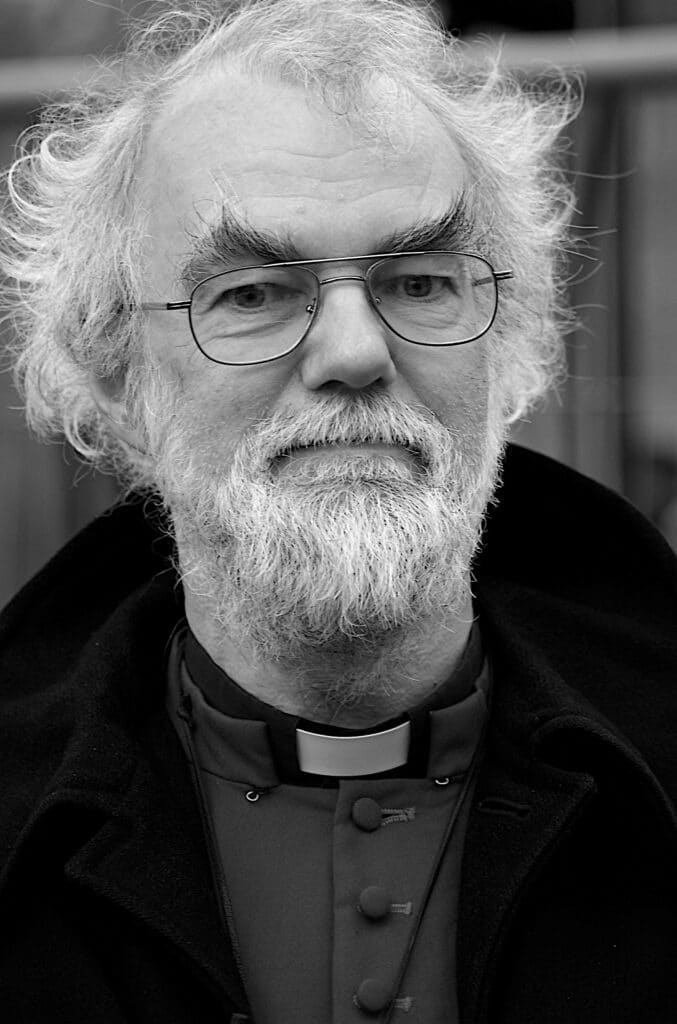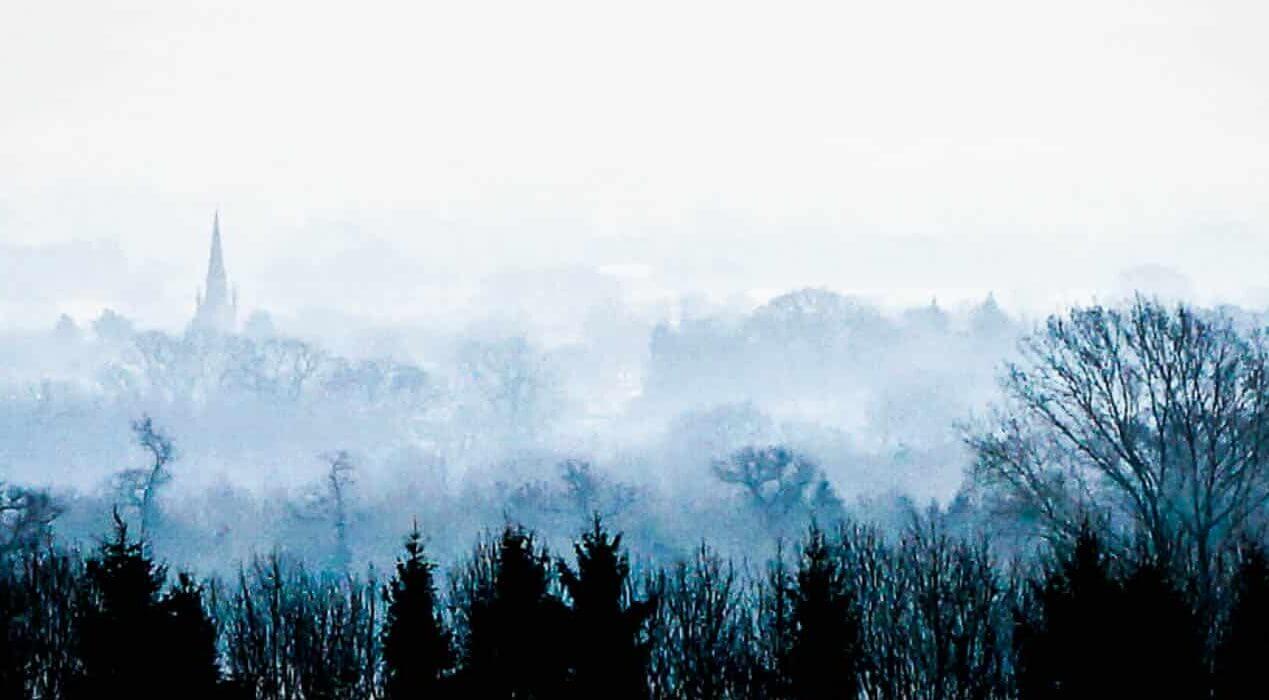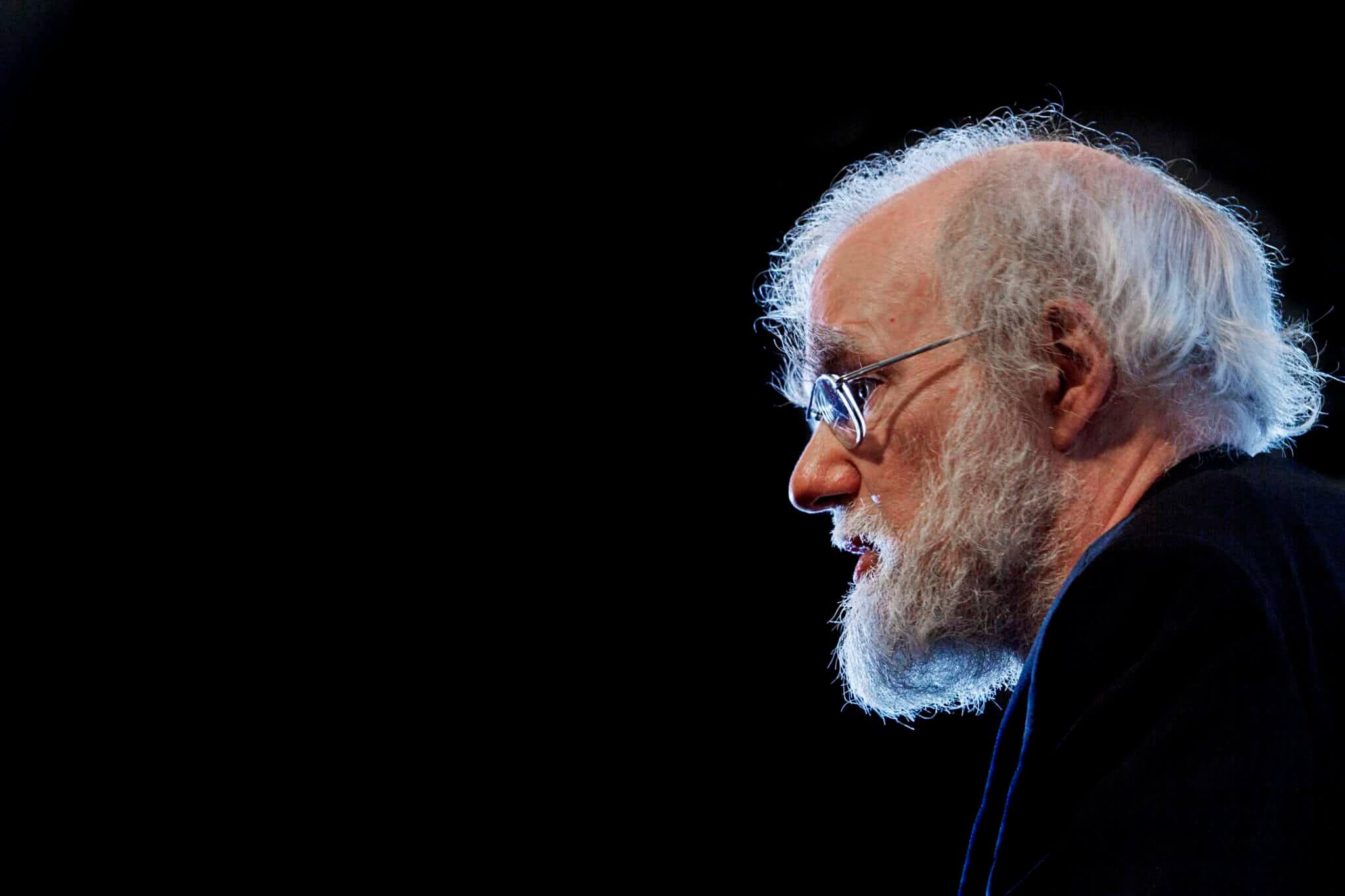What has faith got to do with food and farming? It’s not the kind of question you might regularly consider, but Rowan Williams, academic, poet and former Archbishop of Canterbury, isn’t fazed.
There is the matter of practicality, he says – the church is one of the oldest, most consistent presences in rural and remote areas. Something he says brings “an invaluable connection” with the experience of rural life, which is so often intertwined with food and farming.
There is also something deeper. “There is generally, in faith traditions, a sense that our relationship with the world around is life giving,” he explains. “There is sometimes a view that religion is all about virtue and being good. But a good many people would say it’s actually about being alive, and alive in a way that allows the flow of life to move freely.”
That is a view most environmentalists would likely agree with, and something regenerative or organic farmers, for whom life in the soil is nowadays almost sacred, are perhaps enacting every day.
We are speaking at an event held by Cusp – the Centre for the Understanding of Social Prosperity, of which Williams is patron – after a keynote talk in which he has already answered most of my carefully prepared questions.
The topic has been ‘food justice within planetary boundaries’, otherwise known as fairly priced good food, available to all, without trashing the Earth. Williams has been talking about his career spent travelling and visiting communities addressing these issues in some way; his keynote designed to demonstrate how the different issues of health, food, justice, power, climate and nature are inherently linked.
It’s something he is well placed to do after a career spent in international, academic and interfaith relations and diplomacy, and his oratory skill in joining the dots is on full display.
But Williams isn’t your average bishop. He’s also a published poet, an honorary professor and an activist. He’s multilingual (five in total) and has a reputation for being radical, outspoken and controversial – depending on who you talk to.
He is probably most well known for his nine years as Archbishop of Canterbury. So what does his experience in leading a faith-based community have to offer the issues we face today? “We’ve lost some of that being part of a connected whole,” he says. “Urbanisation doesn’t help. Globalisation doesn’t help. It’s not that you tear up cities and international relations, but you think about what it is to be more attentively involved in the place where you are and the people you’re with. It’s deeply fulfilling.”
For Williams, the strength of a community can be useful in providing resilience for the significant challenges the world faces, including the climate and nature crises, and volatile geopolitics. But it can also be an empowering, perhaps radical, platform for changing the course of some of these challenges.
In recent years, there has seemingly been a recognition of this, with more visible groups coming together on issues from the youth strikes for climate to the ongoing public sector walk-outs.
I suspect that we’re not going to get very much further with the electoral system we’ve got.
Williams, who led a multi-faith ceremony to ask leaders to confront humanity’s destructive habits ahead of COP27 last autumn, agrees that “there’s rather more activism than we’ve seen for quite a while.”
“Maybe 20 years ago, I would have said teenagers and students from that era were not quite as active as I remember from the late 60s, and then it’s sort of swung back a bit,” he says. But it’s not all rosy, and he sees modern day activism as occasionally “chaotic and scattergun”, with single-issue politics sometimes taking over from the bigger points.
All the same, the issue isn’t a lack of uprising in citizen awareness and consciousness, as polls repeatedly show how the public believe climate change to be the biggest issue of our time. Rather, the issue is how leaders are responding.
“At the same time, unsurprisingly, we have a political establishment that’s digging itself in more and more firmly,” he says, and points to the need for structural, rather than social, reform.
“Whether we’re at a tipping point I don’t know. I would like to think so. But I also suspect that we’re not going to get very much further with the electoral system we’ve got,” he says, adding that electoral reform will be needed to “get us away from what I think of as ‘Tweedle Dum and Tweedle Dee’ politics.”

Nevertheless, he still sees it as vital that people “have a sense that they can make a difference.” He sees this as one of the core roles of cooperatives, describing them as “agency giving” as much as “problem solving” ventures.
He is in favour of “loosening up our education philosophy”, citing young people who were consulted as part of his work with the Welsh government on shaping the future of the constitution, and who wanted to be “out there campaigning and voting”.
He’s also interested in localised power structures, which he sees as developing “people’s skills in dealing with one other, problem solving and also building a culture”, enabled by strong national leadership.
“It matters for people to be on school governing bodies. It matters for people to be in credit unions, or cooperatives. And I think that is where you start. It won’t happen, though, without a bit of a change at the other end. So national governments that actively encourage this.”
While there are plenty of examples of local or regional government – he cites Manchester’s mayor Andy Burnham as an inspiration – on a national scale, the government’s Public Order Bill appears to be actively discouraging citizen engagement and action.
It’s the kind of bill Williams might have had personal experience with – in 1985, he was arrested for singing psalms as part of a protest organised by the Campaign for Nuclear Disarmament at the US base of Lakenheath – and he says it [the bill] “worries me a great deal.” “I think it’s panicky, and cosmetic. Panicky because it’s a reaction to a largely imagined problem; what’s wrong with the rules we’ve got? What are they trying to fix? And it’s cosmetic because it’s, as they say, ‘red meat’ for the voting base. Never mind what happens – it looks good.
“People are constantly talking about solutions that have no problems. Brexit, for example – a solution to a problem that didn’t exist. There are real problems! I believe the psychiatrists would call it ‘displacement activity’.” I suggest that might be a relatively nice way of putting it, to which he concedes “it’s as uncynical as I can get.”
There is definitely a sense that, behind the gentle voice, iconic eyebrows and careful answers, there is someone much more outspoken and perhaps even angry at the injustice and inaction facing society. A sign of a life spent in the public spotlight, perhaps, or of holding radical views inside a conservative institution.

The church, of course, is far more than a benign community network. According to the land access campaign website and public resource, Who Owns England, its property arm – the Church Commissioners – owns over 100,000 acres of land and property worth over £2 billion.
Williams is clearly well aware of the significance of this, noting in his talk that “land ownership is the elephant in the room” and “you can only talk about food sustainability if you have some control over the land.”
The church is notoriously secretive about what land it owns and even the articulate Williams becomes a little less free on the topic. “The church has begun looking at, broadly speaking, the environmental ethics of its investments,” he begins. “It’s looking a bit at the ethics of land use and what it does with its tenants, which has been an issue for quite a long time – several centuries – with some rather hair-raising stories about… when people have taken their eyes off the ball there. So it’s on the radar,” he says, sounding guarded for the first time in our interview, before reverting to the safety of religious metaphors.
“I’d like it to be more so, and I’d like us to be a bit more joined up and forceful about this in public, and particularly about the fact that, in the Christian faith, the consumption of food is actually a sacramental act. The main thing that Christians do together is Holy Communion; they eat a little bread and drink a little wine. So we ought to be interested in food – we put it right at the heart of what we do.”
It matters for people to be in credit unions or cooperatives.
It’s clear that for the church to ever fully become a modern blueprint for community, it would need to first recognise its own part in the nexus of power, land and wealth distribution that controls so much of society and food justice issues in this country and globally. I wonder aloud if there are probably some competing interests that might be standing in the way of such a coming together. “I dare say,” says Williams, with no further detail except a wry smile.
It’s perhaps why he is so interested in change happening on the fringes as a counter to centralised power systems, and why he sees most hope in the visions of the Welsh government, where national food partnerships are funding community-led projects across the country, or Burnham’s Manchester-led vision for local government.
As he puts it: “Change will happen, as is often the case, on the margins. I’m obviously very interested in what can be done in Wales to revive and renew the democratic system. The experience of smaller scale governmental units is, I think, very important for challenging the astonishingly centralised culture and economy.”
After such a varied career, is there anyone who has stood out in terms of leadership, religious or otherwise? “I still have immense respect and affection for the Dalai Lama. I’ve had the privilege to know him a little bit and work with him on a few things. He’s just one of those people who, without any of the pomp of leadership, conveys a very simple authority. And that’s impressive. He doesn’t need the cosmetic stuff.
“But on political leaders, I struggle to think of current examples. I have great admiration for Mark Drakeford, the First Minister of Wales, just because I think he’s a man of manifest integrity, without a great, dramatic ego.
“Another figure, I can’t even remember his name, but it was what he did that impressed me. I was travelling in the Solomon Islands and met the Premier of Malaita. I was celebrating mass in a football field, and the Premier said to me: ‘We’ve just had the civil war, and a lot of people think it was all someone else’s fault. And of course it wasn’t, it was ours too. I’m going to ask you to absolve us for our complicity.’ How many leaders would say my job is to focus on fallibility? That’s leadership.”
And with that, our time is up, and all that’s left is a glimpse of a vision of a fairer world, with robust communities and ethical leadership. Just a glimpse in a blue eye, but it’s there nonetheless.
This interview was initially published in the spring-summer edition of Wicked Leeks magazine. You can order a hard copy of the magazine until 17 May, or read the digital edition online for free.









0 Comments